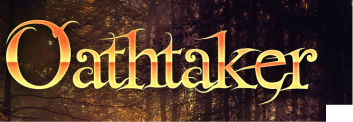
* * * * *
I received a free copy of this book in exchange for an honest, nonreciprocal review.
Generally, I do not read short stories. I find that when I meet a character I like, I want the story to go on. I want to follow that person, get inside his head, discover what happens next. . . . Because short stories are just that—short—that part of the reading experience is not present with a short story. But, I discovered something with Sun. Sun revealed to me that it is for precisely this reason that short stories are so well liked. It is because the characters cannot be followed for the long term that the well-written character stays with the reader. There is a skill and a beauty to that fact, which Howard has captured.
The Sun is an anthology of short stories published on behalf of the Saluki Welfare Fund. Therein was another thing I learned with Sun. I had never heard of a Saluki before. A breed of dog, also known as the Gazelle Hound, it seems Salukis have come upon hard times. Howard’s anthology was published on their behalf. If they could know it, they would be proud of that fact.
Howard introduces her stories with an invitation to relax with your beverage of choice and “peek into the lives of the people who populate” her imagination and so, I did.
For me, Howard’s characters seemed like real people and I did enjoy the peeks into their lives. In Polly Polo, Julie writes her parents that, because of some odd event that had just transpired, she is feeling “quite blonde.” I expect this is precisely how a grown child might communicate with her parents. Julie, on her way to work in her “elderly car,” that engages in “a bit of asthmatic wheezing on the hilly bits,” runs into some trouble. She struggles with getting a number on her cell while speaking on it to someone at the same time—who hasn’t had that happen?—then resolves her problem. All in all, I identified readily with Julie—and I quite enjoyed the differences between the English of the UK and of the US!
I especially liked Emily’s Hat. I was reminded of times when my son, at 6’4,” was concerned about “standing out.” I told him that since he couldn’t hide, he should walk into a room like he owned it, like he meant everything he wore and was doing, like any attention that came to him was, perhaps, due him—that to do otherwise would make him stand out anyway-but not likely in a positive way! This is precisely what Emily did when she donned her hat and discovered that she could use the brim to allow others to see her or to hide from them completely. “With my hat I can be whoever I wish to be,” Emily said, and in that moment, Emily grew, while still maintaining her own unique, base personality. I think I enjoyed Emily the most of all of the Sun’s characters.
Howard exercises colorful language and descriptions. An example: “She stood on the kerb and gathered her courage around her, but it felt more of a wet paper bag than protective armour.” That single line provided deep insight into Emily. Or, how about this one: “And I have to giggle when Mam and Da go out: from behind they look like Laurel and Hardy.” A great word-picture, that. Or: “The only bright thing in the place was the gleaming, steaming, coffee machine, snorting exuberant steam at the cups.” Those coffee machines do rather snort, don’t they?
Overall, the stories were engaging, picturesque, no-nonsense, and insightful. There were numerous gems of wisdom sprinkled throughout. From a non-short story reader, a sincere congratulations for a job well done.
Learn more about AS THE SUN GOES DOWN here.
I received a free copy of this book in exchange for an honest, nonreciprocal review.
Generally, I do not read short stories. I find that when I meet a character I like, I want the story to go on. I want to follow that person, get inside his head, discover what happens next. . . . Because short stories are just that—short—that part of the reading experience is not present with a short story. But, I discovered something with Sun. Sun revealed to me that it is for precisely this reason that short stories are so well liked. It is because the characters cannot be followed for the long term that the well-written character stays with the reader. There is a skill and a beauty to that fact, which Howard has captured.
The Sun is an anthology of short stories published on behalf of the Saluki Welfare Fund. Therein was another thing I learned with Sun. I had never heard of a Saluki before. A breed of dog, also known as the Gazelle Hound, it seems Salukis have come upon hard times. Howard’s anthology was published on their behalf. If they could know it, they would be proud of that fact.
Howard introduces her stories with an invitation to relax with your beverage of choice and “peek into the lives of the people who populate” her imagination and so, I did.
For me, Howard’s characters seemed like real people and I did enjoy the peeks into their lives. In Polly Polo, Julie writes her parents that, because of some odd event that had just transpired, she is feeling “quite blonde.” I expect this is precisely how a grown child might communicate with her parents. Julie, on her way to work in her “elderly car,” that engages in “a bit of asthmatic wheezing on the hilly bits,” runs into some trouble. She struggles with getting a number on her cell while speaking on it to someone at the same time—who hasn’t had that happen?—then resolves her problem. All in all, I identified readily with Julie—and I quite enjoyed the differences between the English of the UK and of the US!
I especially liked Emily’s Hat. I was reminded of times when my son, at 6’4,” was concerned about “standing out.” I told him that since he couldn’t hide, he should walk into a room like he owned it, like he meant everything he wore and was doing, like any attention that came to him was, perhaps, due him—that to do otherwise would make him stand out anyway-but not likely in a positive way! This is precisely what Emily did when she donned her hat and discovered that she could use the brim to allow others to see her or to hide from them completely. “With my hat I can be whoever I wish to be,” Emily said, and in that moment, Emily grew, while still maintaining her own unique, base personality. I think I enjoyed Emily the most of all of the Sun’s characters.
Howard exercises colorful language and descriptions. An example: “She stood on the kerb and gathered her courage around her, but it felt more of a wet paper bag than protective armour.” That single line provided deep insight into Emily. Or, how about this one: “And I have to giggle when Mam and Da go out: from behind they look like Laurel and Hardy.” A great word-picture, that. Or: “The only bright thing in the place was the gleaming, steaming, coffee machine, snorting exuberant steam at the cups.” Those coffee machines do rather snort, don’t they?
Overall, the stories were engaging, picturesque, no-nonsense, and insightful. There were numerous gems of wisdom sprinkled throughout. From a non-short story reader, a sincere congratulations for a job well done.
Learn more about AS THE SUN GOES DOWN here.


